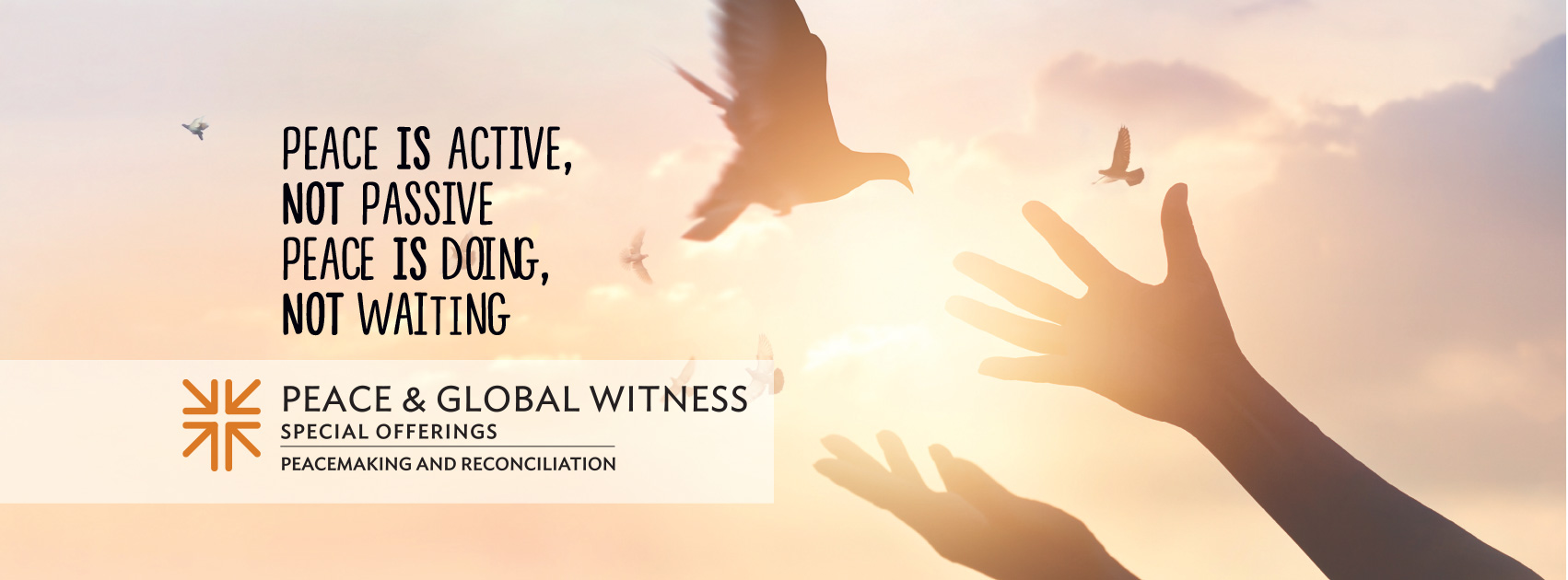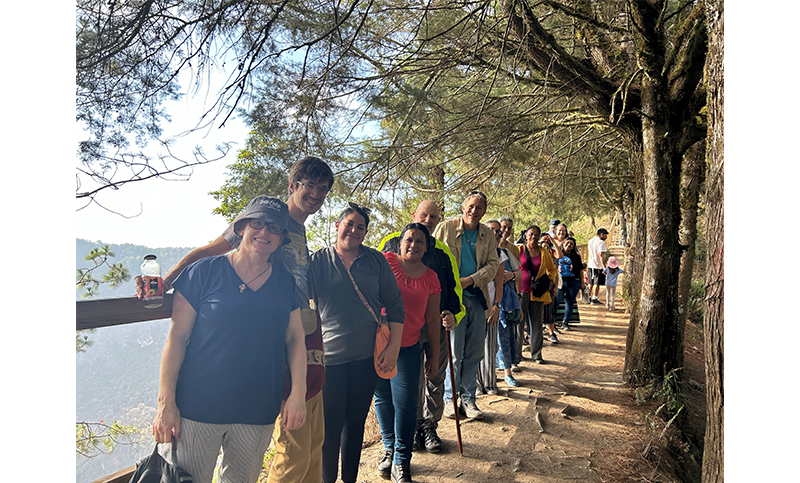Peace & Global Witness
Season of Peace begins Sept. 6
In less than a month, Presbyterian Church (U.S.A.) congregations will begin observing a Season of Peace, a four-week spiritual journey designed to deepen the pursuit of peace.
Spanning from Sept. 6 through Oct. 4, the season is a time for congregations to focus on what it means to be a peacemaking congregation and what it means to be people of peace, said Carl Horton, coordinator of the Presbyterian Peacemaking Program.
“I hope the Season of Peace is a chance for congregations, whether gathered or dispersed, to reflect on their identity and consider anew what they can do to promote peace in their communities and in our nation and in the world,” he said.
The Season of Peace is an important partnership between the Office of Special Offerings and the Peacemaking program, said Bryce Wiebe, director of Special Offerings.
It includes resources for churches as well as individuals and families who want to embark on the four-week pilgrimage. One way to start is by signing up to receive daily reflections by 2020 editor Henry Stone via email. The reflections, known as the Path of Peace, also can be downloaded.
“It’s a daily devotion for all four weeks and then leading up to World Communion (Sunday),” Horton said. “That is a new resource specifically written for this year.”
The reflections focus on practicing peace within (Sept. 6-12); peace in relationships (Sept. 13-19); peace in community (Sept. 20-26) and wholistic peace (Sept. 27-Oct. 4).
“Each daily reflection offers insight and connection between Presbyterians, inviting the Spirit to strengthen and support one another in shared life and ministry, through the Peace & Global Witness Offering, and the ministries of every member of the body of Christ,” Wiebe said.
Additional resources include peace cards, which are conversation starters that can be downloaded and soon will be available to order by box; an adult Bible study; a book study for adults; children’s curriculum and a coloring poster for kids.
“The Peacemaking Program historically has provided resources to teach peacemaking to children, youth, adults and reinforce it throughout our faith formation,” Horton said. It’s about “lifelong faith formation as peacemakers.”
The Season of Peace web page also includes information to help plan events, such as peace fairs, although that may not be feasible for some faith communities during the pandemic.
Churches are encouraged to dive deeply into areas, such as preventing gun violence and addressing racism. There are many existing resources on both of those topics, including the recently concluded “Standing Our Holy Ground” webinar series as well as the Bearing Witness project, which includes the Presbyterian Week of Action Aug. 24-30.
“That is absolutely aligned with a commitment to peacemaking for a church to take seriously its role in addressing racism in church and in culture and in their community,” Horton said. “A small group of folks could read the Belhar Confession and Zoom about it together.”
National events, including the upcoming presidential election, make this an important time for committing to peacemaking.
“The months leading up to a national election are often filled with conflict and this year maybe more so than in the past,” Horton said. “We can disagree without being disagreeable.”
For more information on the Season of Peace or to sign up for the reflections, go here.
The Presbyterian Peacemaking Program is one of the Compassion, Peace and Justice ministries of the Presbyterian Mission Agency.
Give to the Peace & Global Witness Offering to continue the valuable ministry of the Peacemaking Program.
This was originally published for Presbyterian News Service on August 12, 2020.
read more stories:
participate with us
When we all do a little,
it adds up to a lot.
The Peace & Global Witness Offering draws Presbyterians together and provides exposure to active peacemakers as well as education and resources to empower congregations and individuals to become peacemakers, themselves. These collective efforts support resources in dealing with conflict, provide nurturing reconciliation, and stand in support of our global siblings, because the peace of Christ belongs to people everywhere.







